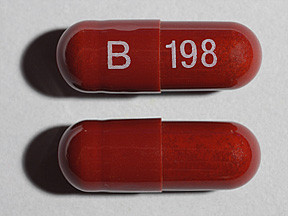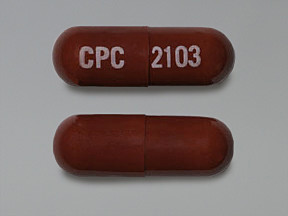IRON/VITAMIN B12/FOLIC ACID - ORAL
PHONETIC PRONUNCIATION:
COMMON BRAND NAME(S): Niferex-150 Forte
GENERIC NAME(S): iron polysaccharide complex/cyanocobalamin/folic acid
Uses
USES: This combination product contains a mineral (iron) along with 2 vitamins (vitamin B12 and folic acid). It is used to treat or prevent a lack of these nutrients which may occur due to certain health conditions (such as anemia, pregnancy, poor diet, surgery recovery). Iron is an important mineral that the body needs to produce red blood cells. Vitamin B12 is important for normal blood, cells, and nerves. Folic acid is needed to form healthy cells, especially red blood cells. Women of childbearing age must get enough folic acid, either through diet or supplements, to prevent spinal cord birth defects in an unborn baby if they become pregnant.
How to use IRON/VITAMIN B12/FOLIC ACID - ORAL
HOW TO USE: Take this medication by mouth as directed by your doctor, usually once daily. This medication is best taken on an empty stomach 1 hour before or 2 hours after meals. If stomach upset occurs, you may take this medication with food. Avoid taking antacids, dairy products, tea, or coffee within 2 hours before or after this medication because they will decrease its effectiveness. Take with a full glass of water (8 ounces/240 milliliters) unless your doctor directs you otherwise. Do not lie down for at least 10 minutes after taking this medication. Take this medication regularly to get the most benefit from it. To help you remember, take it at the same time each day.
Side Effects
Precautions
Interactions
Overdose
Images
Reviews
Faq for IRON/VITAMIN B12/FOLIC ACID - ORAL
Iron is a mineral that is essential for the production of hemoglobin, a protein in red blood cells that carries oxygen to various parts of the body. It is important for maintaining proper energy levels, brain function, and a healthy immune system.
Iron deficiency can lead to a condition called iron deficiency anemia, characterized by fatigue, weakness, pale skin, shortness of breath, and decreased immune function. It can also affect concentration and cognitive abilities, impair physical growth in children, and increase the risk of complications during pregnancy.
Iron can be found in both plant-based (non-heme) and animal-based (heme) foods. Good sources of iron include red meat, poultry, fish, legumes, tofu, spinach, fortified cereals, and nuts.
The recommended daily intake of iron varies based on age and gender. For adult men, it is around 8 mg, while for adult women, it is 18 mg due to the monthly loss of iron during menstruation. Pregnant women may require up to 27 mg per day.
Vitamin B12 is a water-soluble vitamin that plays a crucial role in nerve function, DNA synthesis, red blood cell production, and the metabolism of carbohydrates, fats, and proteins. It is also essential for the proper functioning of the brain and nervous system.
Vitamin B12 deficiency can cause fatigue, weakness, tingling or numbness in the hands and feet, difficulty maintaining balance, memory problems, and depression. In severe cases, it can lead to nerve damage and irreversible neurological disorders.
Vitamin B12 is primarily found in animal-based foods such as meat, fish, dairy products, and eggs. Vegans and vegetarians can obtain vitamin B12 from fortified plant-based foods or through supplements.
The recommended daily intake of vitamin B12 for adults is around 2.4 mcg. However, higher amounts may be required for pregnant and breastfeeding women.
Folic acid, also known as folate, is a B-vitamin that is essential for cell division, DNA synthesis, and the production of red blood cells. It is particularly important during periods of rapid growth and development, such as pregnancy.
Folic acid deficiency can lead to anemia, characterized by fatigue, weakness, shortness of breath, and pale skin. It can also cause neural tube defects in babies if a pregnant woman does not consume enough folic acid.
Good sources of folic acid include leafy green vegetables, citrus fruits, legumes, fortified grains and cereals, liver, and yeast extract.
Warning
WARNING: Accidental overdose of iron-containing products is a leading cause of fatal poisoning in children under 6 years. Keep this product out of reach of children. If overdose does occur, get medical help right away or call a poison control center.
Disclaimer
IMPORTANT: HOW TO USE THIS INFORMATION: This is a summary and does NOT have all possible information about this product. This information does not assure that this product is safe, effective, or appropriate for you. This information is not individual medical advice and does not substitute for the advice of your health care professional. Always ask your health care professional for complete information about this product and your specific health needs.




No Reviews Yet